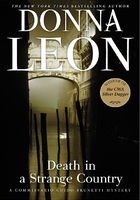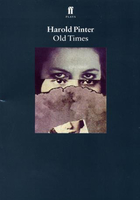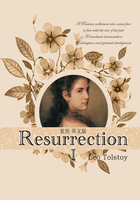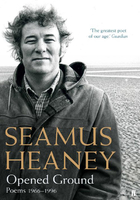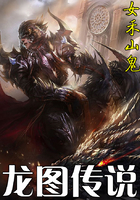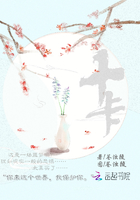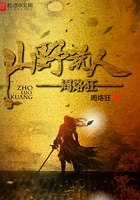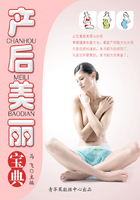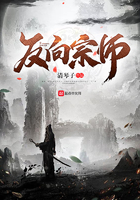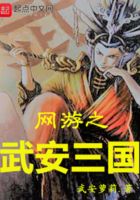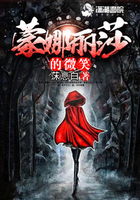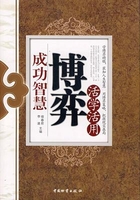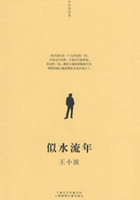I started writing Stand Up! before the fateful 2016 election. I wanted to boil down what I've learned about social change from working as a community organizer for over twenty-five years. I wanted to explain how to make a difference in a system that seems to be stacked against us and why to dedicate your life to social change. This preface explains why I wrote the book and some of the experience on which it's based.
Opening Our Hearts
Chances are, we don't know each other. I don't know how you've decided to live your life, your hopes and dreams, or the suffering you've experienced. But we're in the same boat. I have a stake in whether you decide to get involved and speak out. Whether we're awake to it or not, we're facing off together against the same wealthy families and large corporations that have too much influence over our lives. Too often, their interests are to remove as much oil and gas from the ground, automate as much work to reduce labor costs, and divide us as much as necessary to hold on to their power. We cannot trust good intentions or our democratic institutions to protect us. All we have to fall back on is each other and our capacity to work together to create a better society. That rests not on technology or brainpower but on our ability to see each other as brothers and sisters, even if we've never met: to love others as we love ourselves.
I felt this sense of human kinship and interdependence on February 6, 2017, as I stood with 150 people gathered in Phoenix to pray for Guadalupe Garcia de Rayos as she said good-bye to her two children and entered a federal immigration building. The next day she was deported to a country she had left twentyone years before at age fourteen. The photo of Guadalupe's distraught face as she looked through the grated window of a van taking her away was haunting. It reminded me of how I felt watching Tajai Rice being handcuffed and locked in the back of a squad car while her brother bled to death in a Cleveland park where he'd gone to play and hearing Sandra Bland being told by a White Texas State Trooper that he'd “light her up” for asking why she'd been stopped.
Whether we see this pain in person or on social media, it can break our hearts—if we crack them open wide enough. We're programmed to resist oppression—our own and that of those we love. It makes us angry to see another person treated as less than human. We know that our humanity doesn't flow from the lightness or darkness of our skin, the ID in our pocket, or the money in our paycheck. When we feel injustice, it provokes an instinct to fight back, to resist. Still, we wonder whether anything can be done. After we react to a Facebook post or repeat a hashtag, what comes next? How do we convert our anger and frustration into action that makes a difference, especially if the system seems rigged?
We know that our humanity doesn't flow from the lightness or darkness of our skin, the ID in our pocket, or the money in our paycheck.
For the past two decades, I've had a job teaching and agitating people to come together to improve their communities and the country. I've helped build some of the most effective grassroots organizations in the United States. The organization I work for—Faith in Action (formerly PICO National Network)—equips tens of thousands of people every year with tools to fight racial and economic injustice. We teach the art and science of community organizing—the steps a person can take to become a leader for change. We show people how to put the values they care most about into action. The multiracial, people-led organizations in our network have won hundreds of victories, including raising wages, expanding access to high-quality affordable health care, reforming sentencing laws, and reducing gun violence—creating better lives for millions of people.
Since 2008 (in the shadow of the financial crisis), we've seen more people showing up at meetings wanting to tackle bigger issues and take greater risks. In August 2013, fifteen men and women spent twenty-one days walking through the blazing heat of the Central Valley in California to build support for immigration reform. Their pilgrimage for citizenship began with a Catholic mass in Sacramento. It ended 285 miles later with a three-thousand-person rally in Bakersfield (from which the cover image is taken). It followed (in reverse) the route Cesar Chavez took on the historic 1965 farmworkers' march. More than eighteen thousand people participated in the events along the way. Thousands more walked in pilgrimages in other states. The willingness of people to walk for weeks and the scale of the response surprised some people. But I see it as a sign that people are growing more committed to fighting for social justice.
We're all impacted by the overlapping crises facing our society, but the shock waves hit some people before others. Those who experience injustice most directly are often acting first and taking the greatest risks. They're putting their bodies on the line to show that there is a better path forward. This is what a small group of young people did when they took to the streets of Ferguson to protest Michael Brown's killing, chanting “We're young, we're strong, we're marching all night long.” Many met for the first time watching as Michael lay bleeding in the street. They faced down military weapons, tanks, and tear gas and relentlessly told the Ferguson story through social media. Their courage created a moral crisis—a moment of truth—that has rippled through every community in the United States.
Since the 2016 election, people from all walks of life have come together to resist Trump administration policies targeting and scapegoating immigrants, Muslims, people of color, the LGBTQ community, and women. Black Lives Matter activists and faith leaders have ramped up efforts to end cash bail and elect responsible prosecutors who will stop trying children as adults and reduce the number of people behind bars. Low-wage workers have continued to press for higher wages and a union through Fight for $15. Dreamers have been organizing to keep their legal status and protect their parents from deportation. These, and hundreds of other grassroots campaigns that have gotten less notice, give us a glimpse of what's possible when people organize.
But even when you combine all the social justice organizing taking place across different networks, issues, and movements in the United States, it doesn't match the forces we're up against. Our opponents are on the wrong side of history and humanity. But they have enormous resources. They have a web of institutions that stretches from think tanks, super PACs, and lobbyists in Washington, DC, to radio and television stations and activist groups in every state. The richest families in America have made government more responsive to money than people. To counterbalance their influence, we the people need to create a level of sustained mobilization, disruption, and grassroots political influence not seen on the side of social justice in the country since the 1960s. That's why I wrote Stand Up!
My Story
I learned the most important lessons about organizing from women and men who'd spent their lives fighting the dictatorship of Augusto Pinochet in Chile. In 1990, during the transition from the dictatorship to an elected government in Chile, I lived with my wife, Julia Paley, in a neighborhood with dirt streets and hand-built houses on the outskirts of Santiago, the country's capital. I spent my days working with a grassroots health collective that had been organizing for years to resist and defeat Pinochet. It was sobering to realize that during those years, the decision to go to a meeting meant risking being tortured or killed. You might not know people's real names at these meetings (many used pseudonyms to protect themselves and others), but you'd better know them well enough to trust them with your life. The last thing you wanted was to rely on good intentions or go into battle alongside people without having deep relationships with them. I watched how seasoned leaders brought new people in by valuing their knowledge and experience, and how they worked with people under intense stress to form groups that took concrete action in the community. I learned how clarifying it is to know exactly who your opponent is and understand that you're in a life-and-death struggle. I came back to the United States clear about how important it is for all of us to have organizations that we control and can use both to protect ourselves and our families and to reshape society.
My path into a life of social change had been shaped by two ideas that my parents taught me when I was young. The first was a Holocaust lesson that you needed power to survive. If you were powerless, then people who hated you could kill you and your family and destroy your culture. The second was that each of us is created in God's image, so you treat people with respect whatever their race, religion, gender, or background.
My mother told me stories about growing up in Mattapan, a neighborhood in Boston. I was struck by the idea that you could walk to the grocery store, see neighbors along the way, and if you didn't have enough money, get what you needed on credit. It may have been an idealized view; still, it seemed so different from the anonymous suburban life we had. I could feel my mother's sadness at losing that sense of community.
She and my father explained what happened to her neighborhood in a way that pointed toward actions taken by powerful institutions. They said that Brahmin (White Protestant elite) bankers held deposits from Irish families who didn't want Black people living in their neighborhoods. So the bankers drew a red line on a map around Mattapan and other neighborhoods where Jews and Blacks lived. They said that these were the only neighborhoods in which Black families could borrow money to buy homes in. This redlining kept White ethnic neighborhoods and suburbs White. Jewish homeowners were not allowed to sell their homes directly to Black families. They had to go through middlemen. Banks and real estate speculators were able to profit off this scheme through blockbusting. They would scare Jewish families into selling at fire-sale prices and then resell the same homes over and over—at inflated prices. The loans were federally insured, so bankers and real estate agents made more money when homes were foreclosed and then resold.
The story my parents told me about Mattapan fed into the larger narrative of what could happen if you didn't have power or were despised. When I moved to Philadelphia in 1982 for college, I didn't fully understand redlining and blockbusting in Mattapan or the fires in Boston and fights over school busing that I'd watched on the news growing up. But I had an orientation toward the world.
In Philadelphia, during the deep Reagan recession, I saw a lot of people living on the streets and thousands of abandoned houses. That contradiction conflicted with what I'd been taught about valuing people and about problems being solvable. As a freshman, I led my first organizing campaign (Students for a Sensible Calendar) to persuade the university to change the school calendar so that the first day of classes wouldn't fall on the Jewish high holiday of Rosh Hashanah. Later, Desmond Tutu visited campus, and a good friend and I started Jewish Students Against Apartheid. We joined a twenty-day sleep-in outside the college president's office to press the university to sell stock in companies doing business with South Africa. From the mundane to the global, these experiences helped me overcome shyness, which had made me want to hide in the back of classrooms in high school. Campus organizing gave me a taste of what it felt like to operate with other people in the world. But it also left me wondering how it was that we could fight small wrongs against my own community and great ones a world away but do nothing about the apartheid that defined the city I lived in.
After college, I worked for a network of community organizations that developed housing and employment in Philadelphia neighborhoods. During my job interview, I heard the word organizer connected to paid work for the first time. I learned to analyze data showing mortgage lending discrimination and organize community groups into antiredlining coalitions. We won lending agreements with banks worth millions of dollars. At the time, I didn't connect the work I was doing to the stories I'd grown up with. But looking back, I can see that I found purpose in doing something about the redlining and blockbusting that had destroyed my mother's neighborhood. It was the first time I had a glimpse of what being powerful felt like.
When I was first learning to be an organizer, one of the people I worked for, who was African American, helped me see how much privilege I had walking into a room as a White man, how my race and gender shaped people's willingness to respect what I had to say. But I was also told by others that if you were bringing people together across racial lines to make changes on issues that affected their families and communities—like affordable housing, better schools, and safer streets—you didn't need to spend a lot of time talking explicitly about race. Other organizations could focus on intergroup dialogue. We were uniting people from different races to make changes that they could see in their lives.
The underlying anxiety about focusing on race and racism was that it would make it harder to hold multiracial groups together. Then, as now, many White-led organizations that see themselves as progressive emphasize class over race. They believe that this will keep working-class Whites in the fold. But, something else is going on in this thinking. Looking back, I'm sure that I felt emotional satisfaction in being a White person who was able to bring people together across race to make changes in the community, without having to talk about race or my own privilege. And that made me miss something larger and more important that was happening in my own identity and in the groups and communities I was working with.
For several years, I worked as an organizer with a trilingual Catholic parish in a working-class Philadelphia neighborhood that had been devastated by the collapse of the textile industry. When we started organizing, White, Latino, and Vietnamese leaders in the church met separately to talk about community issues. The Spanish-language meetings attracted the most people, and while the neighborhood problems that people raised in them were similar to those raised by White and Vietnamese parishioners, we also heard many stories of people having felt like second-class citizens when they first began attending church. In the White meetings, people expressed thinly veiled racial anxiety and anger about losing control of their neighborhood. In the Vietnamese meetings, parents worried about losing their children to what they saw as an American urban culture of drugs and gangs. The separate meetings created space for people to talk honestly and find their voice. But when we brought people together, we skipped over the racial subtext in each set of meetings and went straight to the neighborhood issues that people shared in common.
At the first big public meeting we held with city officials—focused on abandoned homes on one of the streets facing the church and car break-ins during services—we translated what was being said in English into Vietnamese and Spanish. Near the beginning of the meeting, a man sitting in the pew in front of me shouted, “My brother died in Vietnam; I'm not going to put up with this crap” and then walked out. Ideas about race were on everyone's minds. But I wasn't equipped to go beyond the edges of a real discussion about how race was playing out in the parish and neighborhood—and in people's hearts. And I wasn't sure that was my job.
In hindsight, I can see that our inability to create space for a direct conversation about racism and racial anxiety—felt but not always spoken—made it harder to unify the parish. It limited what we were able to accomplish. We had a tactical alliance among Anglo, Latino, and some Vietnamese members focused on vacant houses and drug corners. But we weren't able to directly confront how city officials were pitting neighborhoods and racial groups against one another for scarce resources. We focused on symptoms, not causes. Not having the language and space to talk frankly about race and racism held us back from confronting how the neighborhood was being abandoned—so that it could eventually be redeveloped for the benefit of an entirely different set of White people, who had money and time to burn.
My ability to choose whether or not to talk about race and racism was part of the privilege attached to being White in American society. This privilege is toxic to making progress on social justice. Talking explicitly about people's experience with racism and privilege may mean harder conversations. But it increases the chances that people will show up fully. It makes racism the responsibility of everyone, not just people of color. If we see how racism is being used to divide us and set us against each other, if we talk honestly about how it lives in our hearts, then we have a chance to build the trust needed for people to work together to create a more just and humane society.
In Stand Up! I discuss many of the most pressing issues facing American society and the world. Underlying all of them is a question of who belongs and whose voice counts. As Pope Francis has said, “The only future worth building includes everyone.”[1] Yet every day we see more attempts to pin social problems caused by the concentration of wealth and power onto ordinary people who are trying to make their way in the world—targeting our brothers and sisters for blame simply because of their race, religion, and gender. To build a better world we need to construct a movement that makes space for everyone's suffering and hopes, regardless of background, while also acknowledging the specific trauma and pain caused by racial, gender, and other forms of discrimination and exclusion that plague our society.
The underlying message of this book is that each of us matters. Our opinions need to be heard—and can be heard, but only if we stop watching from the sidelines, open our hearts wider, stand up, come together, and get organized. I hope that Stand Up! can serve as a useful tool for people (and ideally, groups of people) to reflect on their place in the process of social change. As chapter 5 argues, reading and reflecting on books, articles, and other writings can be a useful part of a process of collective action. At the same time, it is important to underline that the ideas and advice in this book are a shadow of the actual experience of fighting for justice in the world. We learn organizing by doing it, and everything we know about organizing is the fruit of those who've had the courage to stand up and wrestle a better world into existence.
注释:
[1] Pope Francis, “Why the Only Future Worth Building Includes Everyone,” filmed April 2017, TED Talk, 17:52, posted April 2017,

